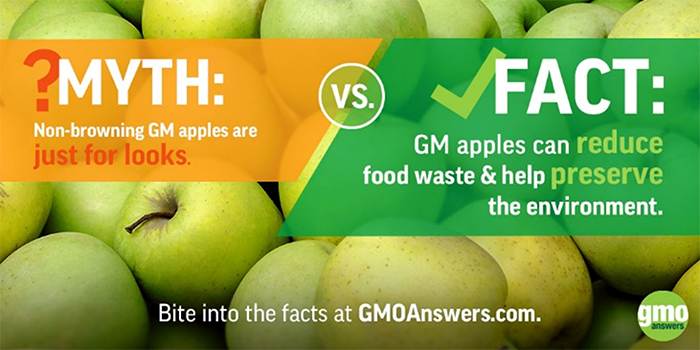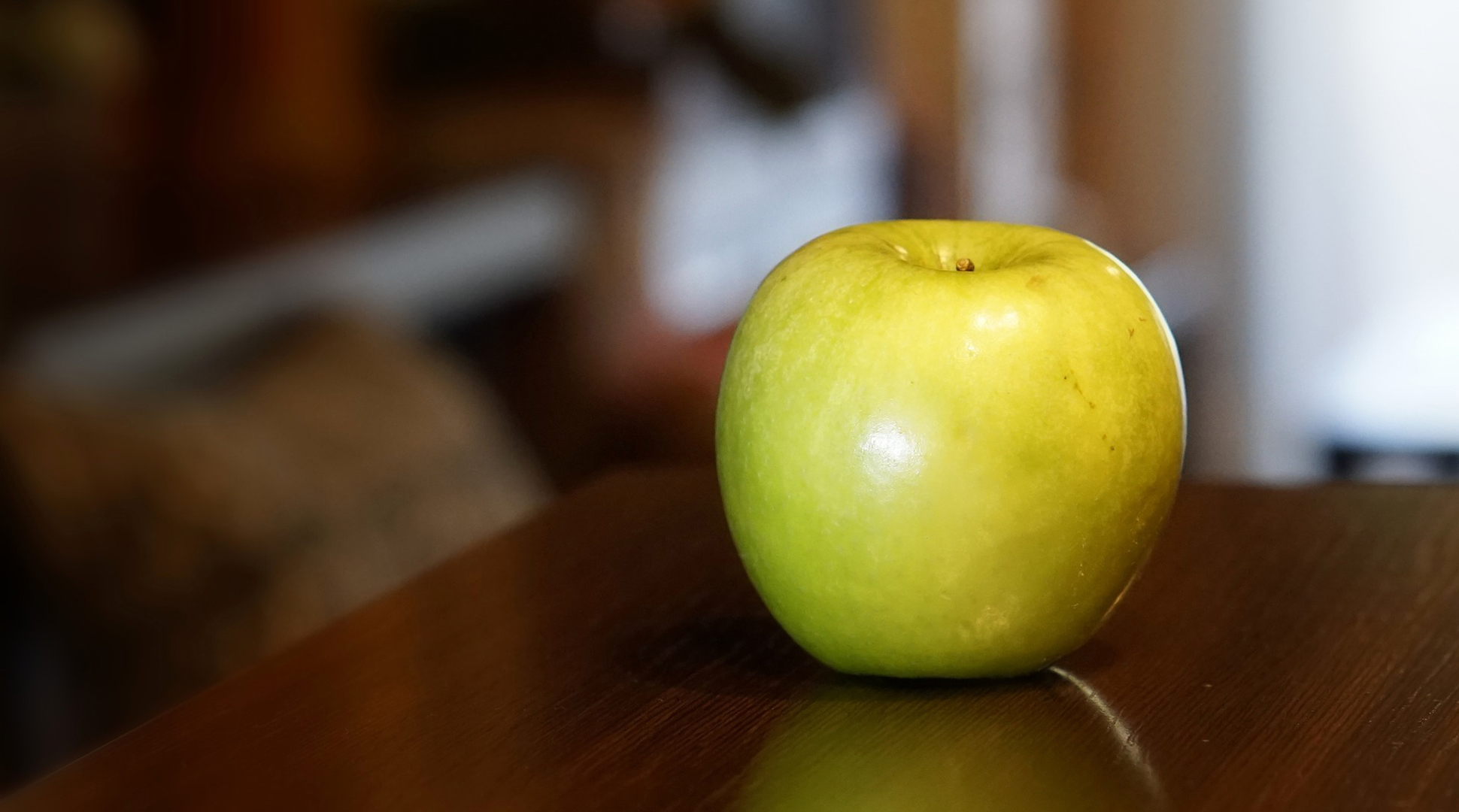By Carie Moore
Who doesn’t love to bite into a ripe, juicy apple? Or a large chunk of apple crisp with fresh cream? Or Snicker salad as a side dish? Apples are #2 in fruit snack options, right behind bananas.
The main problem with all these scenarios is, if in the process of making these desserts or you set your apple down to switch the laundry or change the dirty diaper, the apple is brown when you return to it.
When you cut or bite into an apple, you start a chemical reaction. Cool, right?! Well, it’s not so cool for the apple. Many people won’t eat the apple just because it is browning, so they throw it in the trash. That’s the not cool part, because food waste is a huge problem in the United States.
But the Arctic® line of apples is helping to change that.
The level of an enzyme called polyphenol oxidase (PPO) is what causes an apple to brown and bruise. In order to keep the apples from browning, the PPO levels have to be lower. Some apple varieties already vary in their PPO amounts and that’s why some are better than others for certain recipes.
Okanagan Specialty Fruits found a way to turn off the PPO gene. So far, Granny, Fuji and Golden, and Gala are the apple varieties that they have been working on. So, if you see the word Arctic® before it, it is a GMO apple.

Oranges are next on the docket for up and coming GMO versions. Citrus Greening is caused by bacteria being transferred by tiny insects. They live in the tree trunks and destroy the vascular systems of the trees which is the vital key in providing nutrients to the fruit growing on that tree from the soil below. Fruit from infected trees is small, green, and usually drops before it’s mature. The long-term effects are that the tree becomes unproductive and ends up being cut down. Less trees mean less fruit.
We are all aware of the time it takes to grow a tree, have it reach maturity and produce fruit. It’s not like many field crops where you plant it and within a few months, it reaches maturity. Until the GMO is established, more nutrients will need to be given to the trees, and more pesticides will need to be used regularly to control the insect spreading the disease.
We want a good availability of fruit, and economically feasible prices for our family. We also want to reduce the amount of food we waste or lose to pests and diseases.
Just another reason I support GMOs!
 Carie Moore is the District 4 representative on the NDFB Promotion and Education Committee. She farms near Rocklake, N.D.
Carie Moore is the District 4 representative on the NDFB Promotion and Education Committee. She farms near Rocklake, N.D.
